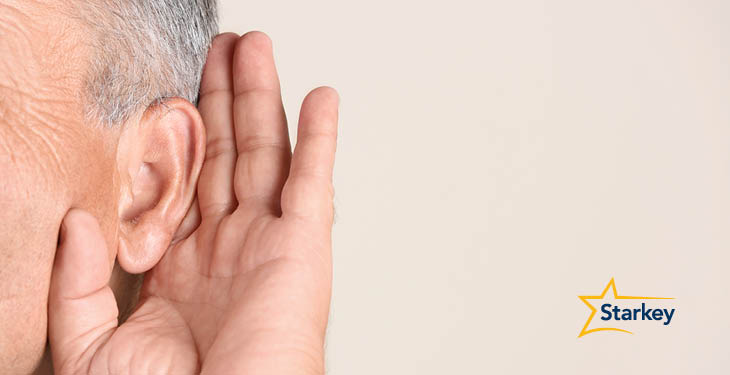For our May 18th Sound Bites podcast, host Dave Fabry, Ph.D brought on Starkey’s own Dr. Archelle Georgiou and Jamie Myers, Au.D. to answer 10 of the most frequently asked questions we get about hearing, hearing loss and hearing aids.
The first question this panel of experts tackled was, “I think I may have hearing loss – what should I do/where should I start?” Below is their answer. It has been edited for length and clarity.
Dave Fabry, Ph.D — First off, if you think you have hearing loss, you're not alone. In the U.S., it's estimated by current figures from the National Institute on Deafness and Other Communication Disorders, that approximately 48 million people have some degree of measurable hearing loss, and worldwide the World Health Organization estimates around 466 million people with hearing loss.
So the thing I would do and would recommend if you think you have some difficulty hearing is get a hearing test. And there are a wide range of ways that you can do this. Seeing an audiologist or a hearing instrument specialist would be the best way to do this face-to-face in a clinical or a retail environment where they can calibrate and get a very accurate assessment of your hearing.
If that's not possible or convenient, you can go to Starkey.com and do a free hearing screening there. You can also download a number of apps, including the free Starkey SoundCheck app that allows you to, as well, screen your hearing on an Android or iPhone.
Dr. Archelle Georgiou — Well, the only thing that I would add to what you said Dave, is that you should do something. And Dave gave you so many different options and ways to explore whether or not you have hearing loss.
The other thing we talked about on a previous podcast is that I wouldn't ever think, well, “It's not bad enough.” Even a small amount of hearing loss is significant. Even if you can deal with it by turning the volume up, your brain is going to notice the difference.

Dave Fabry, Ph.D. — Yeah. And part of that journey in many cases is when an individual goes to their primary care physician and raises the concern. In many cases, they will say, “Ah, your hearing's normal for your age,” or “there isn't a need to rush into this.” And yet, as we will discuss on some of the other questions, we're seeing increasing links between untreated hearing loss and other related health conditions.
So maybe there is a benefit to having some sense of urgency to shorten that delay from the time of noticing that you have difficulty until action.
And the final thing on that is that in many cases, the best litmus test is when you go to a crowded restaurant or you go to the proverbial cocktail party and note that you're having some difficulty in those environments. Because although the hearing test will help confirm where your sensitivity of your hearing is across all of the pitches of sound that are important for hearing, those real world environments are the ones where hearing loss first crops up and hearing difficulty is noticed. Anything else Jamie, that you have to add to that?
Jamie Myers, Au.D. — No, you've covered it. I mean, the first step is a test and there's really no harm in it. So I think the sooner the better, and go see a hearing care professional, or like you said, just do a simple online screening to see where you're at.
Dave Fabry, Ph.D. — Yeah. My dream is to see that the Welcome to Medicare evaluation include something beyond a pencil and paper screening or a hearing questionnaire — and really we are seeing raised awareness for the importance of hearing and balance conditions. Hopefully we're moving in that direction as we move toward the future.
To find a local hearing professional or audiologist who can test your hearing, simply type your zip code in here and you’ll a generate a list of local providers who you can reach out to. To listen to the Starkey Sound Bites podcast, look for it wherever you get your podcasts.
Join our community of Starkey Blog subscribers
Want a week's worth of Starkey blogs delivered to your inbox? Sign up here.
